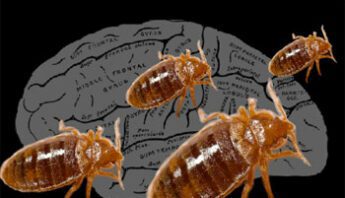As the 50th anniversary of Rachel Carson’s Silent Spring approaches, the purveyors of Monsanto & Co’s falsehoods are out in full force.
The American Council on Science and Health (ACSH) — a front group for the pesticide industry — held a briefing last week, announcing a new report extolling the virtues of pesticides to federal legislators. If this is where our decisionmakers are getting their information, we're in trouble.
And if the new ACSH report is any indication, pesticide corporations and their front groups see this year of Silent Spring's anniversary as an opportunity to undermine science and re-write history.
Follow the money
The report released last week was more of the same from the people who have attempted to obscure and confuse the science around the dangers of asbestos, DDT and plastics. As one Congressional Quarterly survey noted, 75% of ACSH’s funding comes from chemical and pharmaceutical manufacturers. However, ACSH hasn't been willing to disclose their funding since the early 1990s.
In one of the last available public records, Monsanto gave ACSH $105,000, making the pesticide and biotech giant the single largest contributor.
75% of ACSH's funding comes from chemical and pharmaceutical manufacturers.Elizabeth Whelan, outspoken President of ACSH, doesn't see a problem here: “I've been called a paid liar for industry so many times I've lost count."
What’s more, the report’s author — Washington State University professor Allan Felsot, an unabashed proponent of pesticides — cites funding on his resume from from several pesticide and petrochemical interests, including American Cynamid, Chevron, FMC, Illinois Fertilizer and Chemical Association, Union Carbide (remember the Bhopal disaster?) and UniRoyal.
Industry rehashes the same, tired points
Over the years, PAN has repeatedly busted the myths put forth by pesticide makers and agrichemical interests. The only thing new about ACSH’s briefing last week was the packaging.
Speaking with reporters at the offices of CropLife America (the official lobby group for the pesticide industry), ACSH rehashed many of the same, tired talking points. Here are a few examples:
- We need pesticides to feed the world: 400 experts from around the world released a landmark report, sponsored by the UN and World Bank, stating that “business as usual is not an option” for agriculture. In fact, the report goes on to say that the use of pesticides undermines the very resources needed to support growing world demand for food. And this presents a challenge for Felsot, ACSH and the companies they represent, who try to convince U.S. and world leaders that pesticides help yield more food.
- Not all pesticides are created equal: We agree. It’s the tagline of PAN’s database and phone app WhatsOnMyFood that makes pesticide food residue information more accessible. In fact, PAN also created a comprehensive database around pesticides, labeling pesticides as “Bad Actors” to capture the wide range of health impacts. Pesticides can be harmful in very different ways: some damage reproductive health, some are neurotoxicants, and some cause cancer, to note only a few.
- Dose is only part of the equation: Sure, “the dose makes the poison” in a vacuum. However, that tired talking point ignores the fact that pesticides are sold as compound products, not single ingredients. Then there’s the cocktail of pesticides in our air, water, food and soil. Certain pesticides (sicj as endocrine disruptors like atrazine) can have profound impacts at critical windows in a person’s life.
By all counts, industry talking points miss the mark.
The anniversary of Rachel Carson’s Silent Spring is bound to bring pesticide proponents out of the woodwork in 2012. The good news is that the body of science outlining the harms of pesticides is stronger than ever, and Monsanto & Co. don’t have a leg to stand on.







